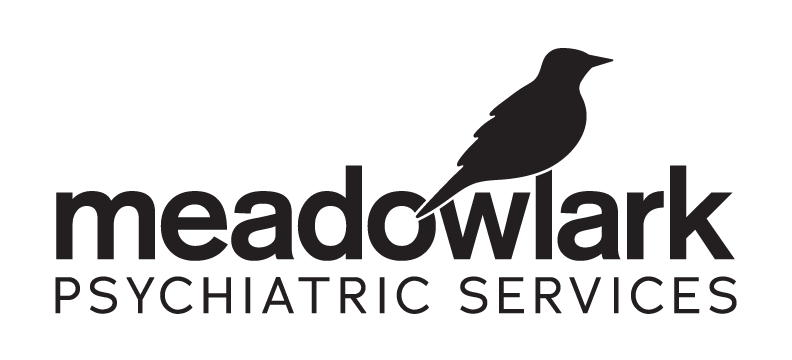Identifying the Signs & Symptoms of Common Mental Health Conditions
Promoting Awareness and Early Identification of Depression, ADHD, & OCD.
As we continue making strides toward the normalization of mental health care, we must also highlight awareness and education about specific conditions. When individuals, parents, providers, and other prominent figures in a child’s life know the signs of mental illness, they can promote early identification and effective treatment.
Mental health issues can negatively impact the quality of life, and when you consider the prevalence of these conditions, it’s that much more apparent that we need to prioritize mental health screenings and have discussions that can make a world of difference for those living with these conditions.
Depression
Depression is a mental health condition characterized by persistent sadness. The most prevalent of these conditions, depression affects over 8% of American adults and 15% of youths—equating to over 24 million individuals each year.
While it’s natural to feel occasional sadness in response to life events or challenging situations, depression lasts for at least two weeks and is accompanied by symptoms that go beyond a typical wave of sadness.
For instance, depression can trigger changes in thoughts, sleep patterns, eating habits, and behaviors. There are different types of depression based on symptoms and severity, but the most common is clinical depression, also known as major depressive disorder. Seasonal affective disorder and prenatal and postpartum depression are specific forms of clinical depression that are important to be aware of.
Signs & Symptoms of Depression
As with all illnesses, symptoms can vary for each person and depending on the specific type. However, it generally includes:
Persistent feelings of sadness, hopelessness, or worry
Loss of interest in activities or hobbies
Increased irritability or frustration
Changes in appetite or eating habits (with weight gain or loss)
Sleep disturbances, including insomnia or hypersomnia
Low energy levels
Difficulty concentrating, making decisions, or remembering things
Chronic headaches, stomachaches, or sexual dysfunction
Thoughts of self-harm or suicide
The good news is that depression is highly treatable, but it’s crucial to seek professional help as soon as symptoms emerge to get relief and prevent depression from worsening.
Attention Deficit Hyperactivity Disorder
ADHD is a neurodevelopmental disorder affecting as many as 1 in every 20 children. It typically persists into adulthood, and in many cases, adults live with ADHD and have never been formally diagnosed.
ADHD can present as inattentive presentation, hyperactive impulsion, or a combination of both. Predominantly inattentive presentation includes difficulty organizing or finishing tasks, paying attention to details, or following instructions or conversations. For individuals with hyperactive impulsion presentation, symptoms include fidgeting, excessive talking, and difficulty holding still for long periods of time. Additionally, feelings of restlessness and impulsivity are common.
Signs & Symptoms of ADHD
ADHD can create difficulties in daily life at all ages and in most cases symptoms and presentation will evolve over time, taking on new forms as individuals experience the demands of adulthood. Recognizing the signs of ADHD in both children and adults is the first step toward effectively addressing the condition.
For children, ADHD might look like:
Frequent daydreaming
Forgetting and misplacing things often
Excessive fidgeting, restlessness, and talking
Difficulty resisting temptations
Taking unnecessary risks
Difficulty taking turns
Trouble with relationships and interpersonal skills
Whereas adults with ADHD may experience:
Impulsiveness
Disorganization and poor time management
Trouble with focus and task completion
Heightened activity or restlessness
Poor planning skills
Low tolerance for frustration
Frequent mood swings
Difficulty managing stress
Quick temper
Obsessive Compulsive Disorder
OCD is a mental health condition characterized by frequent, unwelcome thoughts that drive individuals to engage in repetitive behaviors. It is estimated that OCD impacts around 3 million adults and at least 500,000 youths nationally, with the average age of onset occurring at 19 years of age.
Signs & Symptoms of OCD
The primary symptoms of OCD involve obsessions and compulsions that interfere with daily life. While individuals often recognize these symptoms as problematic, they struggle to control or stop them. The sooner OCD is identified and addressed, the better the prognosis.
Obsessions
Obsessions are like intrusive thoughts, but much more severe. Those with OCD cannot govern these thoughts—even though they often understand their irrationality—and the obsessions tend to provoke intense anxiety.
Common obsessions include fears of contamination, causing harm to oneself or others, unwanted sexual thoughts, concerns about morality, feelings of doubt or disgust, and the need for perfection, symmetry, or constant reassurance.
Compulsions
Compulsions are the time-consuming, repetitive actions that individuals with OCD feel compelled to perform to alleviate their obsessions. It is their belief that they must engage in these compulsions to prevent heightened anxiety.
Some common examples include arranging items in a specific way, washing or cleaning excessively, checking locks, and seeking reassurance.
While compulsions may give individuals temporary relief, the obsessions will eventually return and continue the cycle. This has negative impacts for many reasons, but especially because each compulsion interferes with other valuable activities, like going to work, being on time, or doing things they enjoy.
We’re Here to Help!
Understanding and managing mental health issues takes a lot of time, practice, and sometimes trial and error with your provider to find the best treatment solutions. It’s important to know that you don’t have to go through it alone.
Psychological Testing Services
In addition to Meadowlark’s counseling and medication management services, we also offer psychological testing to better identify signs of mental illness, diagnose conditions, and rule out other contributing factors that may be inhibiting the success of you or your child. Our psychologists work with you to better understand your unique challenges with learning, development, focus, and interpersonal skills.
Learn more about Meadowlark’s mental health screening services and more at https://www.meadowlarkpsych.com/psychological-testing.

